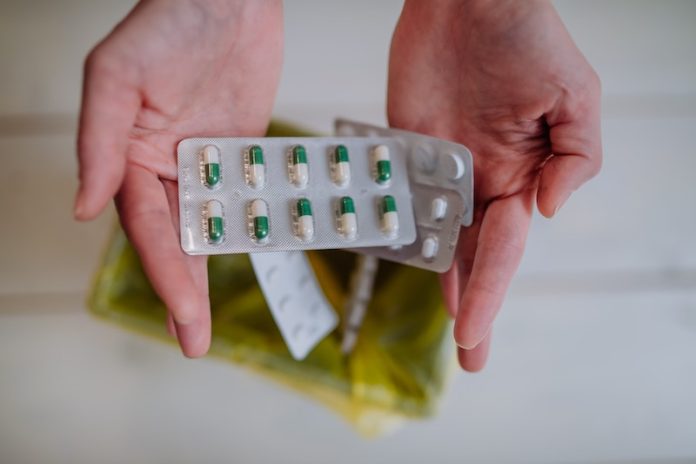
Excerpts from our conversation with Dr. Vance Fowler, an infectious disease specialist at Duke University and co-director of the NIH-supported Antibacterial Resistance Leadership Group (ARLG).
NIHNiH: How do bacteria gain resistance to antibiotics?
Fowler: When you use an antibiotic to treat an infection, there may be hundreds of millions of bacteria. The antibiotic is effective against essentially all of those bacteria, except for just a handful.
They survive because they have a genesthat protects them against that particular antibiotic. And so now, those one or two bacteria out of the hundreds of millions that were killed have the opportunity to grow and expand.
And before you know it, there are hundreds of millions of that bacteria. That’s how resistance develops.
It’s important to also remember that many of these antibiotics that we use were originally isolated from nature. So, bacteria are exposed to antibiotics in nature and have been for millions of years.
NIHNiH: How does the way we use antibiotics speed up the spread resistance?
Fowler: Fundamentally, the fuel for the fire of drug-resistant bacteria is overuse of antibiotics. If a physician knows exactly what’s going on, then he or she is able to make informed decisions about what antibiotic to use for what period.
The challenge is when there’s not certainty about a patient’s condition. You don’t know what the syndrome is. Or you don’t know what the syndrome is being caused by.
Or you don’t know the extent of the infection. So, you end up using multiple antibiotics. Most of which the patient probably doesn’t need. At the end of the day, doctors get points for being right, and not for style.
It’s important to remember that the largest quantity of antibiotics in the United States aren’t even used in humans. The vast majority of antibiotics in the United States are actually used in agriculture.
The emergence of antibiotic-resistant bacteria due to their use in the agricultural industry is very well documented.
NIHNiH: What progress has been made in reducing unnecessary antibiotic use?
Fowler: First, I think that national recognition of the importance of antibiotic stewardship has helped a lot. Efforts that are being pursued in most hospitals now allow a more responsible and effective use of antibiotics.
I am optimistic that over the next five to 10 years, diagnostics will let doctors know sooner what they are treating. A great example is one of the studies with ARLG that we’re pursuing.
We’re using a method based on the patient’s gene expression to differentiate a bacterial infection from a viral infection. I think those have the potential to make great improvements in reducing unnecessary antibiotic use.
NIHNiH: Why can’t we simply create more antibiotics?
Fowler: One problem that we’re facing is the fact that drug development for antibiotics is on life support. There has been a mass exodus of almost all of the large drug companies from the space of antibacterial development.
The reasons are complicated. But they boil down to the ability to make it financially viable for the companies. If you think about an antibiotic prescription, hopefully we’ll only use it for a few days or maybe a couple of weeks.
And the bacteria are developing resistance to the antibiotic. That is unlikely to occur for many other types of drugs, like an antidepressant or cholesterol-lowering drug.
And so, the finances for the development of these compounds just don’t make sense for most companies now.
NIHNiH: What is the scope of the problem posed by antibiotic resistance?
Fowler: The World Health Organization has identified antimicrobial resistance as one of the great public health threats facing humanity.
So, it is not simply a matter of one individual’s opinion. But rather that of a global health organization. It’s real. It’s a clear and present danger to all of us. And it’s not going away.
If you care about nutrition, please read studies that vitamin D can help reduce inflammation, and vitamin K may lower your heart disease risk by a third.
For more information about nutrition, please see recent studies about foods that could sharp your brain, and results showing cooking food in this way may raise your risk of blindness.
Follow us on Twitter for more articles about this topic.



